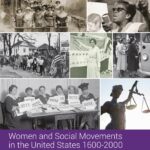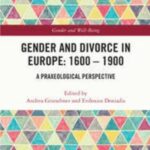socialpolicy.ch. The Open-Access-Journal for Social Policy Research in Switzerland; Ingela Naumann and Laura Meier, Univ. of Fribourg (Web)
Proposals by: 31.08.2024
Despite internationally diverse lived experiences within different socio-political and economic contexts, the Covid-19 pandemic – once more – put a spotlight on one common denominator around the world: the persistence of gender inequalities. It revealed intensified gender inequalities with respect to health and access to health care, the distribution of care work, gainful employment and income, and the risks of being subjected to gender-based violence, just to mention a few. An international body of evidence is expanding on the negative impact of gender inequalities on the wellbeing and prosperity of individuals and societies. At the same time, we observe how long fought-for women rights such as the right to abortion (see e.g. USA) or the right to education (see e.g. Afghanistan) are put into question by deepening ideological and political rifts and with anti-gender rhetoric gaining popularity. Showcasing and discussing feminist perspectives on social policy and women’s social welfare worldwide is thus more topical than ever.
This Special Issue brings together diverse feminist approaches to social policy, highlighting theoretical debate, policy and practice examples from around the world. Feminisms, in their aim to address gender inequalities, fight against oppression and improve the lives of women, has taken different paths, forms and orientations in different cultural, religious, political and legal contexts. This Special Issues aims to critically examine the normative underpinnings and social, economic and political dynamics that lead to gendered inequalities, while encouraging international dialogue between multiple gender-sensitive perspectives aimed at improving social welfare and wellbeing in theory, policy and practice.
The editors welcome theoretical, empirical (qualitative as well as quantitative) or action-oriented contributions that bring different feminist perspectives on social policy and social welfare in conversation to each other to encourage ongoing feminist debate: e.g. between liberal feminist theory and relational ethic of care theory; across different policy fields (reproductive health, work/family balance, poverty and social security, social and ecological sustainability and so forth), and between feminist practice and activism in different countries and world regions (e.g. reproductive rights campaigns in the US, Southeastern Europe and Latin America). They particularly welcome contributions that bridge Global North/Global South/Global East divides … read more (PDF).
Source: GenderCampus

 Centre for Feminist Research at York Univ., Ontario
Centre for Feminist Research at York Univ., Ontario  Women and Social Movements in the United States, 1600-2000
Women and Social Movements in the United States, 1600-2000  Andrea Griesebner, Inst. für Geschichte der Univ. Wien und Evdoxios Doxiadis, Department of History at the Simon Fraser Univ., Burnabay
Andrea Griesebner, Inst. für Geschichte der Univ. Wien und Evdoxios Doxiadis, Department of History at the Simon Fraser Univ., Burnabay 2. Österreichischer Bibliothekskongress
2. Österreichischer Bibliothekskongress  Geschichten aus der Geschichte; Richard Hemmer und Daniel Meßner
Geschichten aus der Geschichte; Richard Hemmer und Daniel Meßner